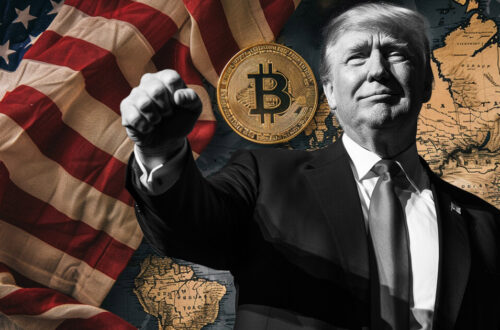During the first appeal hearing for Grayscale’s Bitcoin spot ETF, judges raised concerns about the SEC’s reasoning, stating that the SEC had not sufficiently explained why Grayscale’s arguments were flawed. They also questioned the logic of allowing futures-based Bitcoin ETFs while not approving spot-based ETFs.
What is the significance of investors receiving shares in a trust compared to a Bitcoin ETF traded in real-time?
What is an ETF
Exchange Traded Funds (ETFs) are a specific type of Exchange Traded Product (ETP) that trade on exchanges and typically follow a specific index. Investing in an ETF gives you access to a bundle of assets that can be bought and sold during market hours. This can potentially reduce risk and exposure while also diversifying a portfolio.
Bitcoin ETFs are collections of assets related to Bitcoin traded as ETFs on traditional exchanges by brokerages. These ETFs allow investors who are hesitant to invest in cryptocurrencies to access them without owning them.
When Bitcoin’s price surged to thousands of dollars, direct investment in cryptocurrency became difficult for retail and average investors. Brokerages began developing Bitcoin exchange-traded funds to cater to the growing demand for investor access to Bitcoin. The Winklevoss brothers were among the first to file applications for approval with the Securities and Exchange Commission (SEC) in 2013.
The Securities and Exchange Commission (SEC) has not granted approval for any Bitcoin ETFs that hold Bitcoin as an asset. Instead, it has approved Bitcoin ETFs connected to Bitcoin futures contracts traded on the Chicago Mercantile Exchange (CME).
Key takeaways about Bitcoin ETFs
- Bitcoin futures ETFs are legal, spot ETFs are not
- Bitcoin ETFs allow more people to invest in Bitcoin without the expenses and hassles of buying it.
- ETFs eliminate the need for security procedures and excessive funds and offer a familiar investment type.
- An ETF removes the risks of storing keys as investors own shares of the fund instead of owning cryptocurrency.
- Bitcoin’s high prices make it difficult for average investors to purchase 1 BTC, but ETFs allow exposure to BTC within budget, risk tolerance, and investing goals.
- Investing in Bitcoin ETFs can be done through brokers or advisors. Several Bitcoin ETFs are available on exchanges such as NYSE ARCA and Nasdaq, including BITO, BTF, XBTF, and BITS.
Spot versus futures ETF
In Greyscale’s spot ETF appeal hearing, judges are questioning the logic of how a futures ETF is possible but not a spot.
The debate lies in the fact that ETPs typically track assets that are regulated and thus protected from price manipulation. Given that Bitcoin is not formally regulated as a commodity or security, the SEC has argued that only Bitcoin futures are acceptable for any type of ETP as futures are regulated by the Commodity Futures Trading Commission (CFTC), an independent agency of the US government.
According to Grayscale’s lead counsel Don Verrilli, the SEC’s refusal to approve their spot Bitcoin ETF application was arbitrary, as the regulator has already approved futures-based ETPs. Verrilli argued that both types of ETPs are derived from the price of Bitcoin and are essentially the same. Verrilli also stated that Grayscale is seeking regulation and is searching for a way forward.





